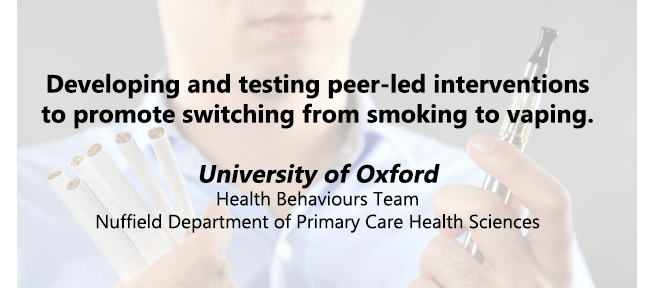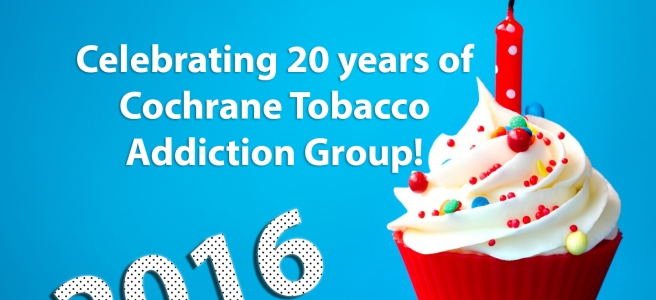
Nicotine & Tobacco Research intends to publish a themed issue on understanding and prompting quit attempts. The guest editors will be Matthew Carpenter and John Hughes. Smoking cessation is a function of two processes: making a quit attempt and succeeding in the quit attempt. Most clinical research on tobacco cessation has focused on the latter. This themed issue invites articles on the processes that lead to a quit attempt or methods to increase quit attempts. In addition to well-established processes that influence quit attempts (e.g., motivation, efficacy, social support), recent studies have described novel processes that might increase quit attempts (e.g., cumulative effect of cues) or decrease quit attempts (e.g., cessation fatigue). Brief advice and motivational interviewing are well-established clinical methods to prompt quit attempts but recent studies have examined novel interventions such as medication sampling, reduction in cigarettes/day, proactive messages to smokers and training relatives/friends to motivate smokers. Other studies have examined related methodological issues, such as the utility of only counting quit attempts that last 24 hours.
This themed issue of Nicotine & Tobacco Research invites articles on:
- Studies to understand the processes of making a quit attempt
- Studies to evaluate interventions to increase quit attempts
- Methodological issues specific to measuring quit attempts. Both empirical studies (human laboratory, field trials, clinical trials, policy and epidemiological studies), and reviews can be submitted.
We anticipate that the themed issue will be published in 2020.
Submission of a manuscript does not guarantee its acceptance. All manuscripts will be reviewed by the Nicotine & Tobacco Research editorial staff and referees, and must meet the standards for publication in Nicotine & Tobacco Research.
Nicotine & Tobacco Research home page and instructions for authors: https://academic.oup.com/ntr
For any questions, please contact Matthew Carpenter (carpente@musc.edu) or John Hughes (john.hughes@uvm.edu).

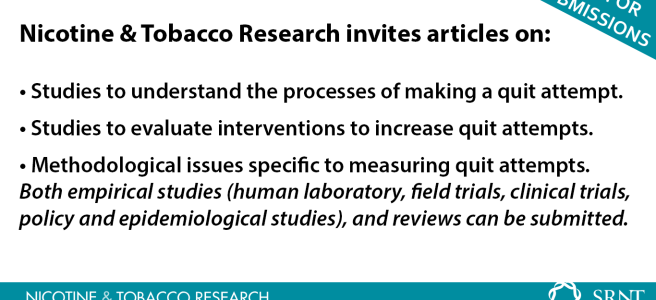






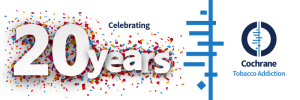



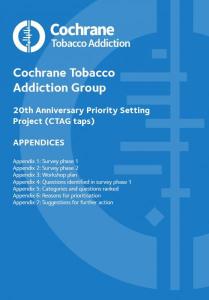

 The introduction of standardised (or ‘plain’) packaging was recommended by the World Health Organisation, Framework Convention on Tobacco Control (WHO FCTC) guidelines. This recommendation was based on evidence around tobacco promotion in general and studies which examined the impact of changes in packaging on knowledge, attitudes, beliefs and behaviour. Standardised tobacco packaging places restrictions on the appearance of tobacco packs so that there is a uniform colour (and in some cases shape) with no logos or branding apart from health warnings and other government-mandated information, and the brand name appears in a prescribed uniform font, colour and size.
The introduction of standardised (or ‘plain’) packaging was recommended by the World Health Organisation, Framework Convention on Tobacco Control (WHO FCTC) guidelines. This recommendation was based on evidence around tobacco promotion in general and studies which examined the impact of changes in packaging on knowledge, attitudes, beliefs and behaviour. Standardised tobacco packaging places restrictions on the appearance of tobacco packs so that there is a uniform colour (and in some cases shape) with no logos or branding apart from health warnings and other government-mandated information, and the brand name appears in a prescribed uniform font, colour and size.